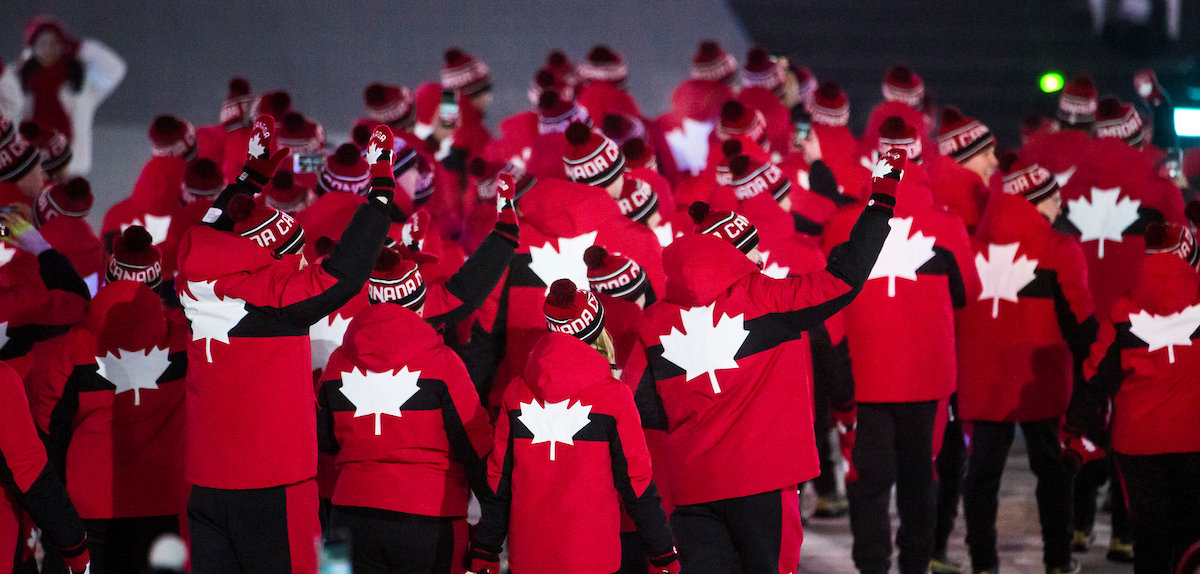Beijing 2022: A boycott is not the answer
“Olympic and Paralympic movements are unique means for promotion of peace and development”
“Olympic and Paralympic movements are unique means for promotion of peace and development”

In just over a year, more than 400 Canadian Olympic and Paralympic athletes will proudly enter the Bird’s Nest stadium in Beijing, fulfilling a lifelong dream of competing on the world stage, of seeing our Maple Leaf atop the podium.
For many Canadians, the Beijing 2022 Olympic and Paralympic Winter Games will hopefully mark a welcome return to normality after the pandemic – an opportunity to emerge from this dark chapter in a strong and positive way.
Over the past few months, we have started to hear rumblings of a proposed boycott of the Beijing Games. China’s troubling human-rights record, the oppression of the Uyghur minority and the continued detention of two Canadians, Michael Kovrig and Michael Spavor, are deeply concerning for us.
In no way are we, at the Canadian Olympic Committee and Canadian Paralympic Committee, trying to minimize what is happening in China. But a boycott is not the answer.
Rather, we believe the interests of all Canadians, and the global community, are better advanced through competing and celebrating great Canadian performances and values on the Olympic and Paralympic stage.
The G20 group of nations agrees with us. At its most recent summit, the G20 reaffirmed its commitment to participating in the upcoming Games. We applaud this declaration. While there are deep divides within the G20, including profound issues of sovereignty, territory and human rights, there are substantial tools for governments to address them meaningfully. An Olympic and Paralympic boycott is not among them. In fact, the Games help build connections and open doors to utilize those tools.
Canada maintains diplomatic relations with China. We have an ambassador, an embassy and consulates. We have billions of dollars in annual bilateral trade. We court billions of dollars in investment from China. And we encourage Chinese students to study in Canada.
Yet critics are calling for us to stop Canadian athletes from participating as the first order of business to reshape our relationship with China.
We believe this amounts to little more than a convenient and politically inexpensive alternative to real and meaningful diplomacy. Boycotts don’t work. They punish only the athletes prevented from going, those they were meant to compete against and those who would have been inspired by them.
This is not speculation. In 1980, a group of countries led by the United States boycotted the Moscow Olympic Games to object to the Soviet invasion of Afghanistan. The Games went ahead – and the Soviets remained in Afghanistan for almost another decade. It also led to a retaliatory boycott four years later of the Olympics in Los Angeles. Few other measures were taken, and in the end only the athletes paid a price.
Calls for a boycott ignore these lessons.
While we should not and cannot compare issues of different circumstances, there is one thing we know: When our beliefs were tested in the past, we strengthened our resolve to become part of the solution, at home and abroad. Anti-LGBTQ legislation in Russia introduced prior to the Sochi 2014 Winter Games inspired sweeping new LGBTQ inclusion programs in our sport communities here in Canada.
The Olympic and Paralympic movements are unique means for the promotion of peace and development, for uniting rather than dividing. Paralympic sport specifically showcases the achievements of athletes with disabilities to a global audience. The “Olympic Truce” stands as a remarkable achievement considering what divides the world.
Faced with only two options – go or don’t go – our approach is to be present and join the conversation. We believe we can amplify voices and use people-to-people connections to effect change, regardless of how aspirational or difficult that might seem at times.
When our Olympians and Paralympians compete in Beijing, Team Canada will showcase Canadian values and help build essential bridges between nations, not walls.
This op-ed originally appeared in The Globe and Mail
"*" indicates required fields